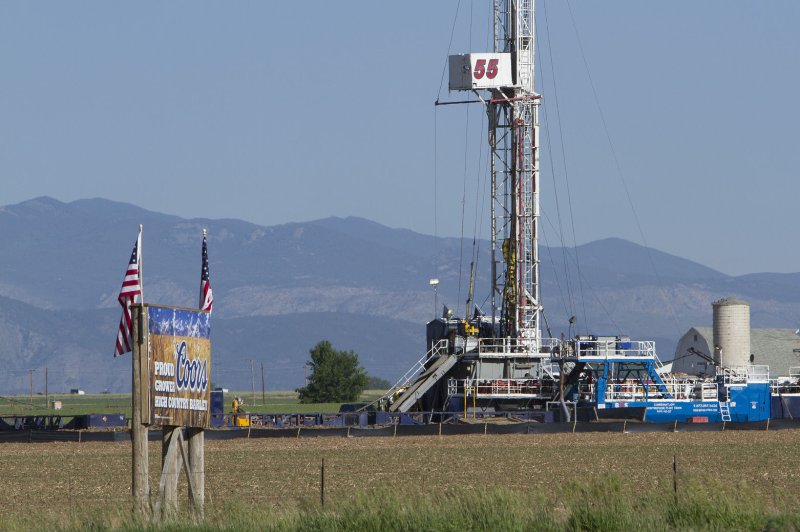State study finds Colorado has one of the better educated pool of workers in the country, though low oil prices are taking a toll on the margins. File Photo by Gary C. Caskey/UPI |
License Photo
DENVER, July 12 (UPI) -- Despite a revenue stream under pressure from low oil prices, a Colorado study finds an educated work force means earnings are higher than the national average.
A study from the Colorado Office of Economic Development and International Trade found the state has one of the highest concentrations of skilled and educated laborers. As a result, the study said growth in jobs like engineering are on pace to grow by more than 2.5 percent over the next decade. Already, the median wage of $37,946 is nearly 5 percent higher than the national average.
"Overall, the results show that Colorado is one of the strongest knowledge-based economies in the nation, which positions us extremely well for future economic success," OEDIT Executive Director Fiona Arnold said in a statement.
In general terms, the Colorado government boasted that it had the seventh lowest unemployment rate in the country, though further gains were uncertain because of tightening labor conditions.
Colorado's unemployment rate has held steady below 4 percent since at least December. For the week ending July 2, the number of people filing initial claims for unemployment moved up 12 percent to 2,353.
With oil prices holding steady near $50 per barrel, energy companies are returning to work in some U.S. shale basins idled by the downturn. Colorado, however, was one of the few states last week reporting no change in activity in the upstream oil and natural gas sector, according to oilfield services company Baker Hughes.
The Colorado study found about 5.3 percent of the working population were employed in the construction of extraction industry, a group that would include the oil and gas industry, versus a national average of 4 percent. The average wage for that sector, about $41,570, was roughly 1.5 percent less than the national average.
The state office of planning and budgets in June said the general fund's revenue for the fiscal year ending this year is expected to increase 1.6 percent and grow another 6 percent next cycle. The 2016-17 projection, however, is 0.6 percent, or $58 million, lower than a forecast offered by the state in March.
Nevertheless, Gov. John Hickenlooper said performance was strong given the tepid outlook for energy.
A late 2015 report from the U.S. Energy Information Administration described Colorado as "richly endowed" with natural resources, both conventional and renewable. In terms of crude oil, production nearly doubled in the two years ending in 2014 so that it now accounts for about 3 percent of the nation's total output.













